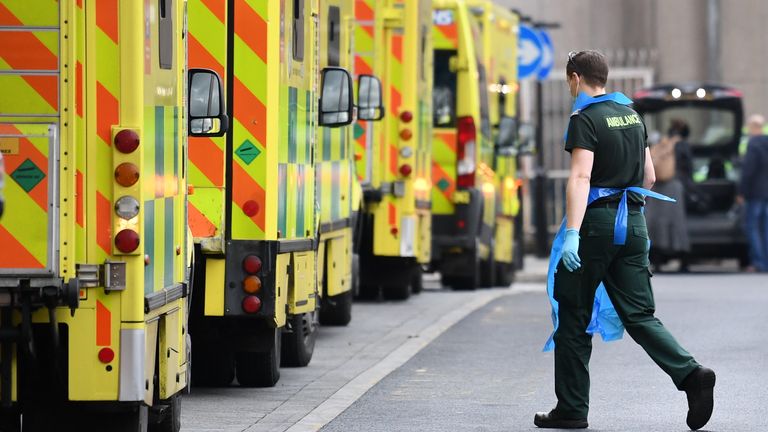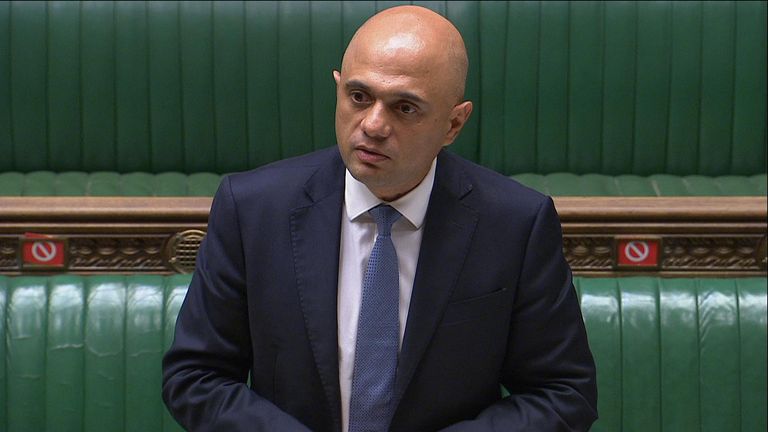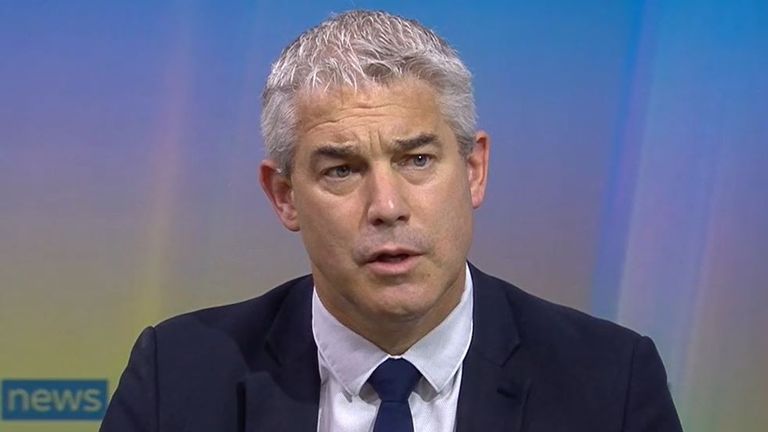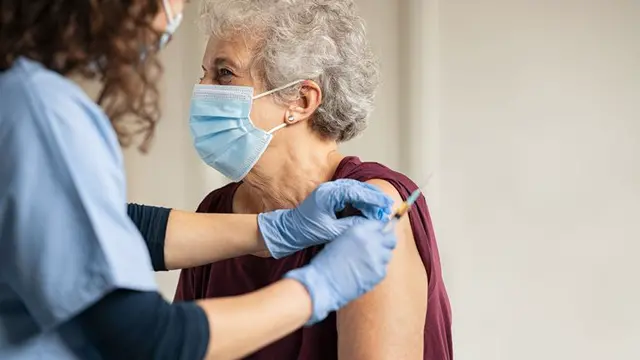Experts have warned that winter could be tough this year with a further surge in COVID-19 cases and other respiratory diseases such as flu.
Hospitalisations and deaths from flu during the 2020/21 winter fell dramatically compared with pre-pandemic levels but there are concerns there could be a huge increase this year.
Health Secretary Sajid Javid has said a review will be carried out in September "to assess our preparedness for autumn and winter".

Image:Hospitals are already facing large backlogs
NHS trusts are already facing the combined hit of COVID-19 cases rising again and a backlog for other treatments including cancer checks and heart disease.
Which diseases are experts concerned about?
The UK was in lockdown for most of the 2020/21 winter season which means cases of flu and pneumonia dropped dramatically because social distancing, hand-washing and face coverings limited their transmission.
The low incidence of these conditions means that the population's immunity and antibodies have dropped which may make people more susceptible to the viruses and more sick if they do get them. Experts are calling this an "immunity debt".
This could be especially serious for young children who have not been exposed to these viruses before.
Neil Ferguson, an epidemiologist at Imperial College London who has advised the British government on its COVID strategy, said "seasonal influenza is likely to be a significant issue" coming into winter.
"All the measures we adopted against COVID around the world drove flu to very low levels and basically nobody got infected with flu last year and so immunity has dropped a little... I think we do need to be prepared for a potentially quite significant flu epidemic later this year," he told the BBC's Today programme last month.
There has already been an increase in children suffering from severe cases of RSV (respiratory syncytial virus) following the reopening of schools and nurseries and lifting of some restrictions in April.
The US and New Zealand have also reported an increase in RSV cases among children in recent months.
What will happen if lots of people are getting ill?
Professor Calum Semple, a member of the Scientific Advisory Group for Emergencies (SAGE), told BBC Breakfast the UK is unlikely to see a return to lockdowns and school suspensions but he said he thought measures such as mask-wearing could be reintroduced.
He said the "winter bump" would be "miserable" due to a mixture of
COVID-19
cases and the respiratory viruses that have not been seen for the last year as people stayed at home.
On Monday, England's chief medical officer Professor Chris Whitty said people may need to take "sensible precautions" if there is a rise in COVID cases over the winter.
Please use Chrome browser for a more accessible video player

Masks 'recommended' in crowded areas post-19 July
He said he also believed a return to restrictions was not inevitable.
Last year the government expanded its flu vaccination programme to cover more than 30 million people - double the number for the 2019/20 flu season.
It is likely that the government will again encourage all eligible adults and children to take up the flu vaccination this autumn in order to prevent a large outbreak of the virus.
How bad will another COVID surge be?
Autumn and winter provide the optimum conditions for respiratory viruses to spread which is why many medical experts are expecting more coronavirus problems.
Please use Chrome browser for a more accessible video player

Reversing lifted restrictions not ruled out
Speaking to the NHS Confederation last month, Prof Witty said: "How big they [the problems] will be I think is uncertain.
"That partly depends on [whether] we get any variants that can evade vaccines better, and on how the current wave passes through the UK."
But he added that it would be "very surprising" if the coming winter was as bad as the one just gone, which was the worst people working in the NHS had ever seen.
But doesn't our high COVID-19 vaccination rate protect us?
While the vaccinations do offer an increased amount of protection from
coronavirus
, the virus has not gone away and it is surging dramatically in other parts of the world.
World Health Organization (WHO) special envoy on COVID-19, Dr David Nabarro, told the Today programme "variants are coming back and are threatening those who have already been vaccinated - we have to take it seriously".
Regarding the government's switch to personal responsibility, Dr Nabarro said: "What does urging caution mean? It's important that everybody knows the best possible advice on how to prevent themselves being infected."
 简体中文
简体中文





